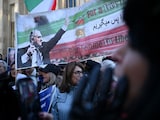Recently, the strategic community was confronted with a strange kind of deterrence that was outside much of the literature that one has read, ever since nuclear weapons were invented. That was the 'Strategic Mutual Defence Agreement', the central point in a Joint Statement between the two, though the text itself remains unseen. It's been the talk of the town, but the question discussed here is exactly what it breaks down into. That's where everything gets a bit murky.
That Dubious Public Pact
First, the language of the joint statement is simply this: it talks of "aspects of defense cooperation between the two countries and strengthen joint deterrence against any aggression...any aggression against either country shall be considered an aggression against both". Whether the actual agreement is even more specific is unclear, but this seems clear enough. Pakistan, as is its practice, muddied the waters when its Defence Minister first said that nuclear weapons "were not on the radar", but then the next day emphasised to GeoTV that "What we have, our (nuclear) capabilities, will absolutely be available under this pact".
He should know. After all, he's the man in charge. But here's the problem: he probably has no idea. One of the few civilians to ever visit a nuclear facility - apart from the many Chinese who work there - was Prince Sultan bin Abdul Aziz, who toured Pakistan's secret nuclear facilities in May 1999 and was briefed by AQ Khan, the father of Pakistan's atom bomb. Earlier, Benazir Bhutto had not even been allowed to come close. The present defence minister is way down the ladder of importance. So here's the open secret. The Saudis certainly funded the "Islamic bomb', but what that means for actual deterrence is entirely unclear.
It's All Been Done Before
Deterrence doesn't mean simply buying up a bomb in someone else's backyard. True, the Saudis were buying missiles from China in 1988, but these were made operational somewhere in 1989, with a range of 2,500 km, within striking distance of Israel. But there were two unusual aspects. One, the missile was highly inaccurate and would only have been useful in a nuclear role. Yet, there was no evidence that such a warhead had been transferred, though a multi-billion military city was created with underground hardened shelters and silos built. As experts point out, Pakistani scientists often slipped into Saudi Arabia under the guise of pilgrimage, so it was not surprising that a Saudi defector revealed that Pakistan and Saudi Arabia had signed a pact of mutual defence at that time in the 1990s.
So, while there's nothing new here, the fact that a public declaration has been made on the same lines means that for various reasons, Riyadh now wants this out in the open. Linked to that is the second curious aspect. Israel was never a target even then; Iran was. That is a signal of how things have changed. Iran welcomed the Saudi Pakistan agreement as "a beginning for a comprehensive regional security system" for West Asia. That statement probably made Pakistani nuclear planners feel faint. A regional pact is no easy task to operationalise.
The Pakistani Arsenal
First, it is true that Pakistan is the only Muslim state with a nuclear capability, that too a healthy arsenal of some 170 warheads ( India has about 180) distributed across air, sea and land launch capabilities. But those weapons are of Chinese origin, and backed with Chinese tech. Moreover it underpins Pakistan's deliberately ambiguous nuclear stance, where first use is a reality, together with claimed 'tactical' nukes. That requires numbers - which are already less than India's. Any expansion of this to cover a bunch of states, which would include Shia Iran, is simply untenable.
Second, will the Saudis and potentially others, adopt this dangerous doctrine as well? Most importantly, against whom? Not Iran, at least for now, and probably not Israel - though the latter will immediately perceive it as being aimed at itself, and act accordingly. Tel Aviv doesn't wait for public confirmations. But all this is extremely unlikely. Riyadh is not going to rile Israel by propounding such an unstable doctrine.
Third and the even more questionable aspect is whether this 'umbrella' has credibility. Master strategist K. Subrahmanyam put it simply and clearly. For deterrence to be believed - and ultimately, it is a mind game - it's not about numbers but believability. The North Atlantic Treaty Organisation, (NATO) overcame this by stationing US weapons and troops in Europe. That means any attack that kills US soldiers will inevitably invite retaliation - but only when another nuclear power is involved. The idea that NATO would use nuclear weapons against a non-nuclear power is implausible, no matter how feisty Trump is. So, will Pakistan nuclear guarantees, backed by Chinese technology and engineers, be credible in a possible Shia-Sunni war? Remember that Pakistan quickly backed off from a fight between Iran and Saudis in Yemen, despite the Saudis being their biggest aid provider.
To be credible, Pakistani missiles have to be stationed in Saudi Arabia. That's indeed possible. But again, that requires Chinese acquiescence. After all, China has done it before. However, Trump has recently got himself deals in the Gulf worth $2 trillion, including some $142 billion in weapons sales to the Saudis, apart from investments of $600 billion. Hardly likely that the US will allow China to walk in and provide a nuclear umbrella.
Fourth, deterrence could be structured only along conventional lines. If only at a bilateral level, it could result in the Saudis pumping money into the Pakistan defence forces - primarily with US weaponry - which is Islamabad's dream come true. True, these may be barred from use against India given a strong Saudi relationship with India - which also has no interest whatsoever in an India-Pakistan war. But a strong military is more than enough for Pakistan's fragile ego that perpetually drives it to seek parity with India. But if this alliance is to expand - as Iran suggests - it would probably be around the existing Islamic Military Counter Terrorism Coalition, founded in 2015 and headed by former Pakistan army chief Raheel Sharif. That would be even less likely to be used against India.
The Sum Of It All
Now look even further at the US role in all this. Remember that the primary role Pakistan plays according to the read-out dealt primarily with Iran, and also Afghanistan. It seems that the US under Trump is looking for 'cheap deterrence' in West Asia, which would not entail US troops being in the fray. A parallel here is Trump allocating Ukraine to European deterrence, and NATO, both of which the US will stay out of. In other words, the world and its troubles are being outsourced to local powers, which, in turn, can choose to deal with them or not. There is a certain logic in this, given that Arab nations have refused to get involved in Gaza directly, only issuing anodyne statements from time to time. All this is very well for West Asia, but there's no doubt that this unexpected raising of Pakistan's status is also aimed at India, and at levelling its claims of being a rising economic power. India is on the road towards being forced to increase its defence expenditure - just like European countries - though it has resisted this in preference to economic growth.
In sum, this defence pact - if it does indeed exist or is to be rolled out in its entirety - is aimed at different actors in Asia: West Asia, India, China and even Russia , even while the US rakes in the money. Trump's foreign policy of disruption is apparently not limited to tariffs or trade. Now, it has reached nuclear weapons.
Meanwhile, the irony is that respected Pakistan media outlets actually believe that Pakistan's 'victory' over India led Muslim nations to turn to Islamabad for a lead role. If this belief is the basis of future doctrine-making for a nuclear umbrella, then it is already dead in the water. A refusal to face hard facts is not the best basis for strategy-making. That's at least one constant in a rapidly changing geopolitical chessboard.
(Tara Kartha was with the National Security Council Secretariat)
Disclaimer: These are the personal opinions of the author















